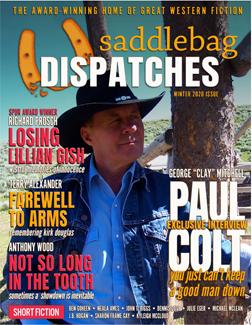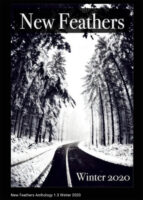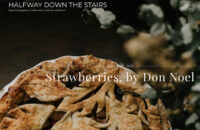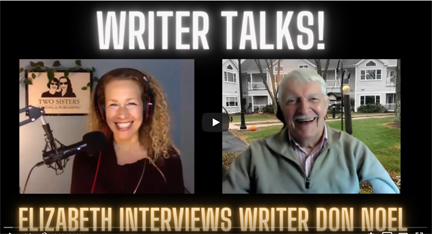When Caustic Frolic, which published my short story “Adoptees” a year ago, announced that their  theme for Spring 2021 would be “Retrospect”, I had an entry already in mind. I find daily joy in an electronic picture frame daughter Emily prepared for Brad, and which is now mine. It has a lifetime’s photos in a thin package; I called the resulting piece “In Surreal Time”. You can read it now (command/control-plus will enlarge the type) in the new issue
theme for Spring 2021 would be “Retrospect”, I had an entry already in mind. I find daily joy in an electronic picture frame daughter Emily prepared for Brad, and which is now mine. It has a lifetime’s photos in a thin package; I called the resulting piece “In Surreal Time”. You can read it now (command/control-plus will enlarge the type) in the new issue
Or of course read it ==>>right here:

 some second- or third-tier magazine likes it.
some second- or third-tier magazine likes it. here and there from the author’s own life. Even science fiction usually involves some very terrestrial human emotions.
here and there from the author’s own life. Even science fiction usually involves some very terrestrial human emotions. The Creativity Webzine, took only four days to snap it up and make it the lead piece in their March issue. You can read it
The Creativity Webzine, took only four days to snap it up and make it the lead piece in their March issue. You can read it  stories: The setting, often, and some of the characters.
stories: The setting, often, and some of the characters.
 flood of memories, but it’s had a hard time seeing the light of day. It was accepted four years ago by The Violet Hour, a literary magazine that went defunct a few months later. When I finally figured that out, I sent the story off to another magazine called Aftermath. It, too, went out of business, although it took me long months to discover that my story was still homeless.
flood of memories, but it’s had a hard time seeing the light of day. It was accepted four years ago by The Violet Hour, a literary magazine that went defunct a few months later. When I finally figured that out, I sent the story off to another magazine called Aftermath. It, too, went out of business, although it took me long months to discover that my story was still homeless. Elizabeth Ann Atkins, one of the Two Sisters who awarded The Daddy Tree a prize, invited me to her weekly YouTube writing conversation. I of course accepted: Something new to try, decades after I was the one doing the interviewing on WFSB’s Face the State
Elizabeth Ann Atkins, one of the Two Sisters who awarded The Daddy Tree a prize, invited me to her weekly YouTube writing conversation. I of course accepted: Something new to try, decades after I was the one doing the interviewing on WFSB’s Face the State




